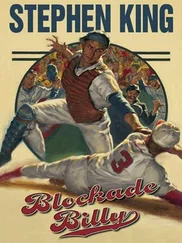William Ellis - Billy Sunday
Здесь есть возможность читать онлайн «William Ellis - Billy Sunday» — ознакомительный отрывок электронной книги совершенно бесплатно, а после прочтения отрывка купить полную версию. В некоторых случаях можно слушать аудио, скачать через торрент в формате fb2 и присутствует краткое содержание. Жанр: foreign_antique, foreign_prose, на английском языке. Описание произведения, (предисловие) а так же отзывы посетителей доступны на портале библиотеки ЛибКат.
- Название:Billy Sunday
- Автор:
- Жанр:
- Год:неизвестен
- ISBN:нет данных
- Рейтинг книги:3 / 5. Голосов: 1
-
Избранное:Добавить в избранное
- Отзывы:
-
Ваша оценка:
- 60
- 1
- 2
- 3
- 4
- 5
Billy Sunday: краткое содержание, описание и аннотация
Предлагаем к чтению аннотацию, описание, краткое содержание или предисловие (зависит от того, что написал сам автор книги «Billy Sunday»). Если вы не нашли необходимую информацию о книге — напишите в комментариях, мы постараемся отыскать её.
Billy Sunday — читать онлайн ознакомительный отрывок
Ниже представлен текст книги, разбитый по страницам. Система сохранения места последней прочитанной страницы, позволяет с удобством читать онлайн бесплатно книгу «Billy Sunday», без необходимости каждый раз заново искать на чём Вы остановились. Поставьте закладку, и сможете в любой момент перейти на страницу, на которой закончили чтение.
Интервал:
Закладка:
Early apprenticed to hardship and labor, he has a sympathy with the life of the toiling people which mere imagination cannot give. His knowledge of the American crowd is sure and complete because he is one of them. He understands the life of every-day folk because that has always been his life. While he has obvious natural ability, sharpened on the grindstone of varied experience, his perceptions and his viewpoints are altogether those of the normal American. As he has seen something of life on many levels, and knows city ways as well as country usages, he has never lost his bearings as to what sort of people make up the bulk of this country. To them his sermons are addressed. Because he strikes this medium level of common conduct and thought, it is easy for those in all the ranges of American life to comprehend him.
"Horse-sense," that fundamental American virtue, is Sunday's to an eminent degree. A modern American philosopher defines this quality of mind as "an instinctive something that tells us when the clock strikes twelve." Because he is "rich in saving common sense," Sunday understands the people and trusts them to understand him. His most earnest defenders from the beginning of his public life have been the rank and file of the common people. His critics have come from the extreme edges of society – the scholar, or the man whose business is hurt by righteousness.
The life of William A. Sunday covers the period of American history since the Civil War. He never saw his father, for he was born the third son of pioneer parents on November 19, 1862, four months after his father had enlisted as a private in Company E, Twenty-third Iowa Infantry Volunteers.
There is nothing remarkable to record as to the family. They were one with the type of the middle-western Americans who wrested that empire from the wilderness, and counted poverty honorable. In those mutually helpful, splendidly independent days, Democracy came to its flower, and the American type was born.
Real patriotism is always purchased at a high price; none pay more dearly for war-time loyalty than the women who send their husbands and sons to the front. Mrs. Sunday bade her husband answer the call of his country as only a brave woman could do, and sent him forth to the service and sacrifices which soon ended in an unmarked grave. Four months after she had bidden farewell to her husband, she bade welcome to his son. To this third child she gave the name of her absent soldier husband.
The mother's dreams of the returning soldier's delight in his namesake child were soon shattered by the tidings that Private William Sunday had died of disease contracted in service, at Patterson, Missouri, on December 22, 1862, a little more than a month after the birth of the boy who was to lift his name out of the obscurity of the hosts of those who gave "the last full measure of devotion" to their nation.
Then the mother was called upon to take up that heaviest of all burdens of patriotism – the rearing of an orphan family in a home of dire poverty. The three children in the Sunday home out at Ames, Iowa – Roy, Edward and William – were unwitting participants in another aspect of war, the lot of soldiers' orphans. For years, Mrs. Sunday, who at this writing is still living and rejoicing in the successes of her son, was able to keep her little family together under the roof of the two-roomed log cabin which they called home. In those early days their grandfather, Squire Corey, was of unmeasured help in providing for and training the three orphan boys.
Experience is a school teacher who carries a rod, as Sunday could well testify. He learned life's fundamental lessons in the school of poverty and toil. To the part which his mother played in shaping his life and ideals he has borne eloquent tribute on many platforms. When the youngest son was twelve years old, he and his older brother were sent off to the Soldiers' Orphanage at Glenwood, Iowa. Later they were transferred to the Davenport Orphanage, which they left in June of 1876, making two years spent in the orphanages. Concerning this experience Sunday himself speaks:
"I was bred and born (not in old Kentucky, although my grandfather was a Kentuckian), but in old Iowa. I am a rube of the rubes. I am a hayseed of the hayseeds, and the malodors of the barnyard are on me yet, and it beats Pinaud and Colgate, too. I have greased my hair with goose grease and blacked my boots with stove blacking. I have wiped my old proboscis with a gunny-sack towel; I have drunk coffee out of my saucer, and I have eaten with my knife; I have said 'done it,' when I should have said 'did it,' and I 'have saw' when I should 'have seen,' and I expect to go to heaven just the same. I have crept and crawled out from the university of poverty and hard knocks, and have taken postgraduate courses.
"My father went to the war four months before I was born, in Company E, Twenty-third Iowa. I have butted and fought and struggled since I was six years old. That's one reason why I wear that little red, white and blue button. I know all about the dark and seamy side of life, and if ever a man fought hard, I have fought hard for everything I have ever gained.
"The wolf scratched at the cabin door and finally mother said: 'Boys, I am going to send you to the Soldiers' Orphans' Home.' At Ames, Iowa, we had to wait for the train, and we went to a little hotel, and they came about one o'clock and said: 'Get ready for the train.'
"I looked into mother's face. Her eyes were red, her hair was disheveled. I said: 'What's the matter, mother?' All the time Ed and I slept mother had been praying. We went to the train; she put one arm about me and the other about Ed and sobbed as if her heart would break. People walked by and looked at us, but they didn't say a word.
"Why? They didn't know, and if they had they wouldn't have cared. Mother knew; she knew that for years she wouldn't see her boys. We got into the train and said, 'Good-bye, mother,' as the train pulled out. We reached Council Bluffs. It was cold and we turned up our coats and shivered. We saw the hotel and went up and asked the woman for something to eat. She said: 'What's your name?'
"'My name is William Sunday, and this is my brother Ed.'
"'Where are you going?'
"'Going to the Soldiers' Orphans' Home at Glenwood.'
"She wiped her tears and said: 'My husband was a soldier and he never came back. He wouldn't turn any one away and I wouldn't turn you boys away.' She drew her arms about us and said: 'Come on in.' She gave us our breakfast and our dinner, too. There wasn't any train going out on the 'Q' until afternoon. We saw a freight train standing there, so we climbed into the caboose.
"The conductor came along and said: 'Where's your money or ticket?'
"'Ain't got any.'
"'I'll have to put you off.'
"We commenced to cry. My brother handed him a letter of introduction to the superintendent of the orphans' home. The conductor read it, and handed it back as the tears rolled down his cheeks. Then he said: 'Just sit still, boys. It won't cost a cent to ride on my train.'
"It's only twenty miles from Council Bluffs to Glenwood, and as we rounded the curve the conductor said: 'There it is on the hill.'
"I want to say to you that one of the brightest pictures that hangs upon the walls of my memory is the recollection of the days when as a little boy, out in the log cabin on the frontier of Iowa, I knelt by mother's side.
"I went back to the old farm some years ago. The scenes had changed about the place. Faces I had known and loved had long since turned to dust. Fingers that used to turn the pages of the Bible were obliterated and the old trees beneath which we boys used to play and swing had been felled by the woodman's axe. I stood and thought. The man became a child again and the long weary nights of sin and of hardships became as though they never had been.
Читать дальшеИнтервал:
Закладка:
Похожие книги на «Billy Sunday»
Представляем Вашему вниманию похожие книги на «Billy Sunday» списком для выбора. Мы отобрали схожую по названию и смыслу литературу в надежде предоставить читателям больше вариантов отыскать новые, интересные, ещё непрочитанные произведения.
Обсуждение, отзывы о книге «Billy Sunday» и просто собственные мнения читателей. Оставьте ваши комментарии, напишите, что Вы думаете о произведении, его смысле или главных героях. Укажите что конкретно понравилось, а что нет, и почему Вы так считаете.












